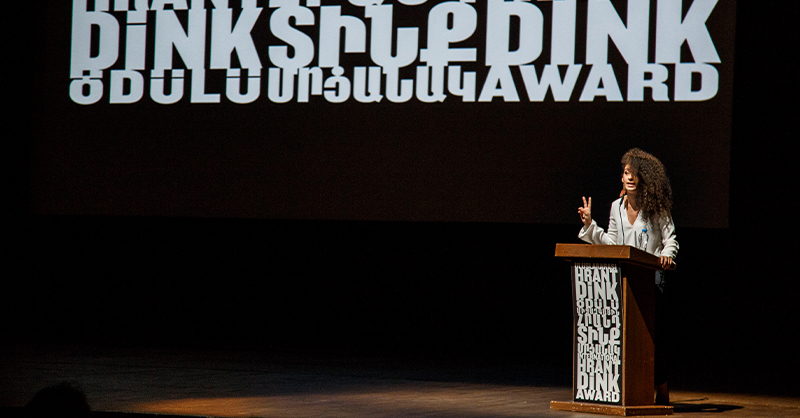
Samar Badawi was born in 1981 in Saudi Arabia. She began her struggle for human rights at a very young age when she took her father, who had abused her physically for fifteen years, to court. Opposing to the male guardianship law which dictates that women of any age must have a male guardian, she filed a lawsuit against her father, who had not allowed her to marry. At the conclusion of her father’s countersuit for disobedience, she was arrested on April 4, 2010. The Saudi Arabian NGO Human Rights First Society declared her detainment “excessive and illegal.” With the help of local and international support campaigns, she was released on October 25, 2010, and her guardianship was transferred to her uncle.
Badawi became involved in legal initiatives for women’s suffrage. When the voter registration center rejected her application prior to local elections in September 2011, she declared that there was no law whatsoever denying candidacy and voting rights to women and that this refusal was illegal. She then filed a lawsuit at the Ministry of Municipal and Rural Affairs’ Diwan al Mazalim (Grievance Board), which is not subject to Islamic law. Citing articles forbidding general discrimination in the Arab Charter on Human Rights in her lawsuit, she demanded the right to vote and run for office. On April 27, 2011, the Board agreed to hear the case at a later date, but its final decision was that there were no grounds for the lawsuit.
In 2011 and 2012, she took part in a campaign to secure women the right to drive. After the main campaign, which began in June 2011, she continued the driving campaign in Jeddah, and helped other women drivers in their dealings with the police and courts. Pointing out that there was no legal basis for charging women drivers, she and another woman human rights activist working on this issue sued the Saudi Arabia General Directorate of Traffic for rejecting their driver’s license applications. In March 2012, she was awarded the International Women of Courage Award by the U.S. Department of State for her opposition of the guardianship law and lawsuits for suffrage, and with these struggles, being a source of courage and inspiration to other women.
In a speech she gave at a session of the United Nations Human Rights Commission in Geneva in September 2014, she spoke about the suppression of peaceful political demonstrations by human rights activists in Saudi Arabia, and the detention of her husband, lawyer and human rights activist Walid Abdulkhair. In the United States, she told senators and various human rights organizations about the situation of her husband and other political prisoners. During this visit, she received an open threat from the Saudi Arabian Ministry of Foreign Affairs, warning her to cease her human rights activities. Upon her return from America, her passport was confiscated. In December 2014, she went to King Abdulaziz Airport in order to travel to Brussels to take part in the 16th European Union NGOs Forum on Human Rights, but was stopped because the Ministry of Internal Affairs had issued a travel ban against her. Despite the travel ban and other obstacles, she continues her struggle for human rights.
